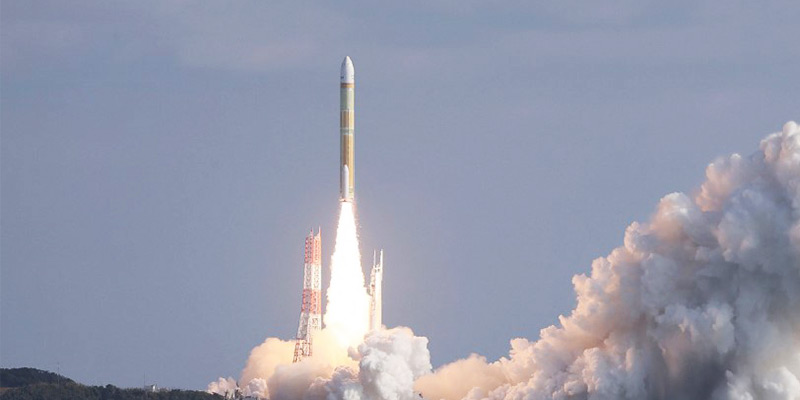- World
- Feb 17
Japan successfully launches next-gen H3 rocket
• Japan successfully launched its new H3 flagship rocket on February 17.
• The H3 rocket blasted off from a launch pad at the Tanegashima Space Centre.
• The rocket successfully achieved the planned trajectory and released the two satellites.
• The launch marks a second straight win for the Japan Aerospace Exploration Agency (JAXA) after its lunar lander, SLIM, achieved a ‘pinpoint’ touchdown in January and made Japan only the fifth country to put a spacecraft on the Moon.
• The launch was closely watched as a test for Japan’s space development after H3 failed in its debut flight in March 2023.
• In its debut flight, the rocket had to be destroyed along with its payload, the advanced land observation satellite, or ALOS-3, triggering disappointment and uncertainty about Japan’s space exploration plans.
• The ground control destroyed the rocket 14 minutes after liftoff when the second-stage engine failed to ignite.
• Another failed flight would have seen Japan face the prospect of losing independent access to space.
• JAXA and its main contractor Mitsubishi Heavy Industries have been developing H3 as a successor to its current mainstay, H-IIA, which is set to retire after two more flights.
• H3 is designed to carry larger payloads than H-IIA at much lower costs of about $330 million, to be globally competitive.
• The Japanese government plans to launch about 20 satellites and probes with H3 rockets by 2030 for domestic use.
• The H3 is scheduled to deliver a lunar explorer for the joint Japan-India LUPEX project in 2025 as well as cargo spacecraft for the US-led Artemis moon exploration program in the future.
Manorama Yearbook app is now available on Google Play Store and iOS App Store

